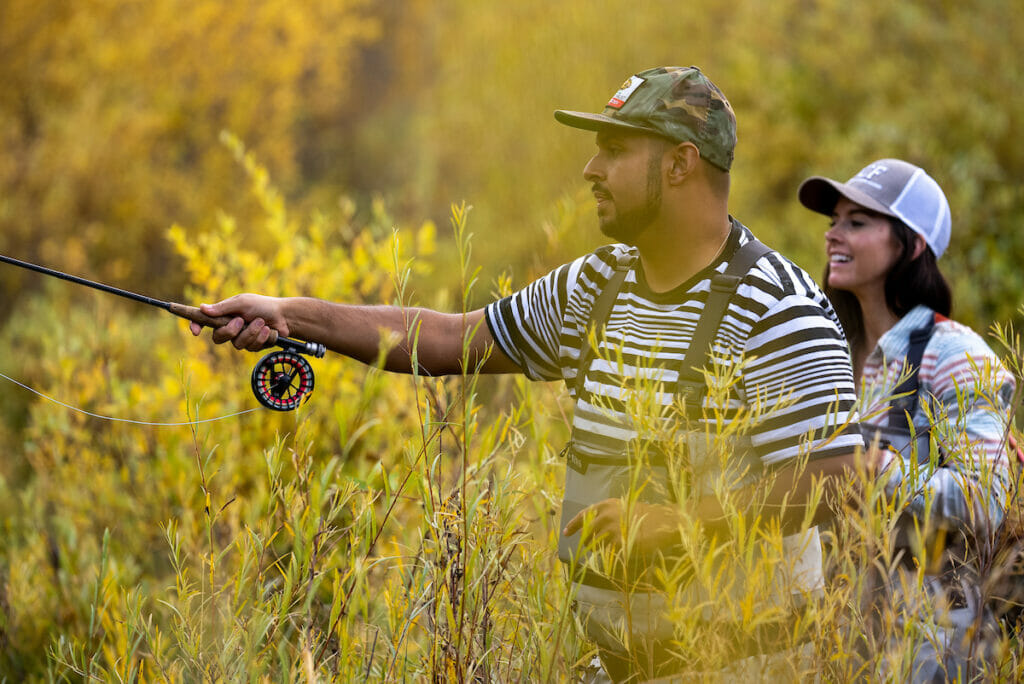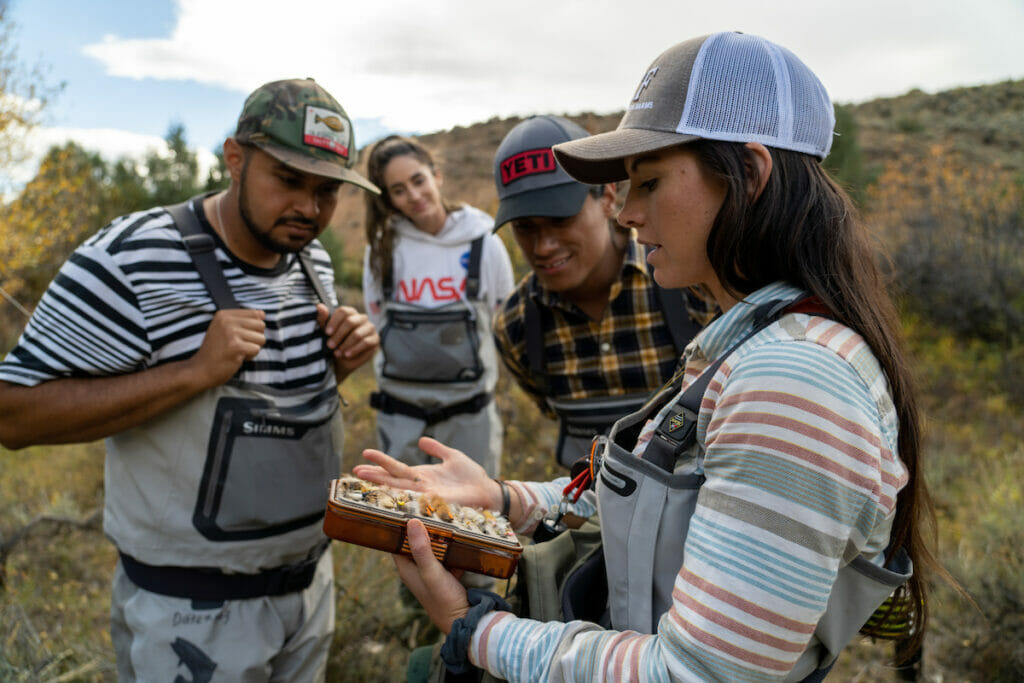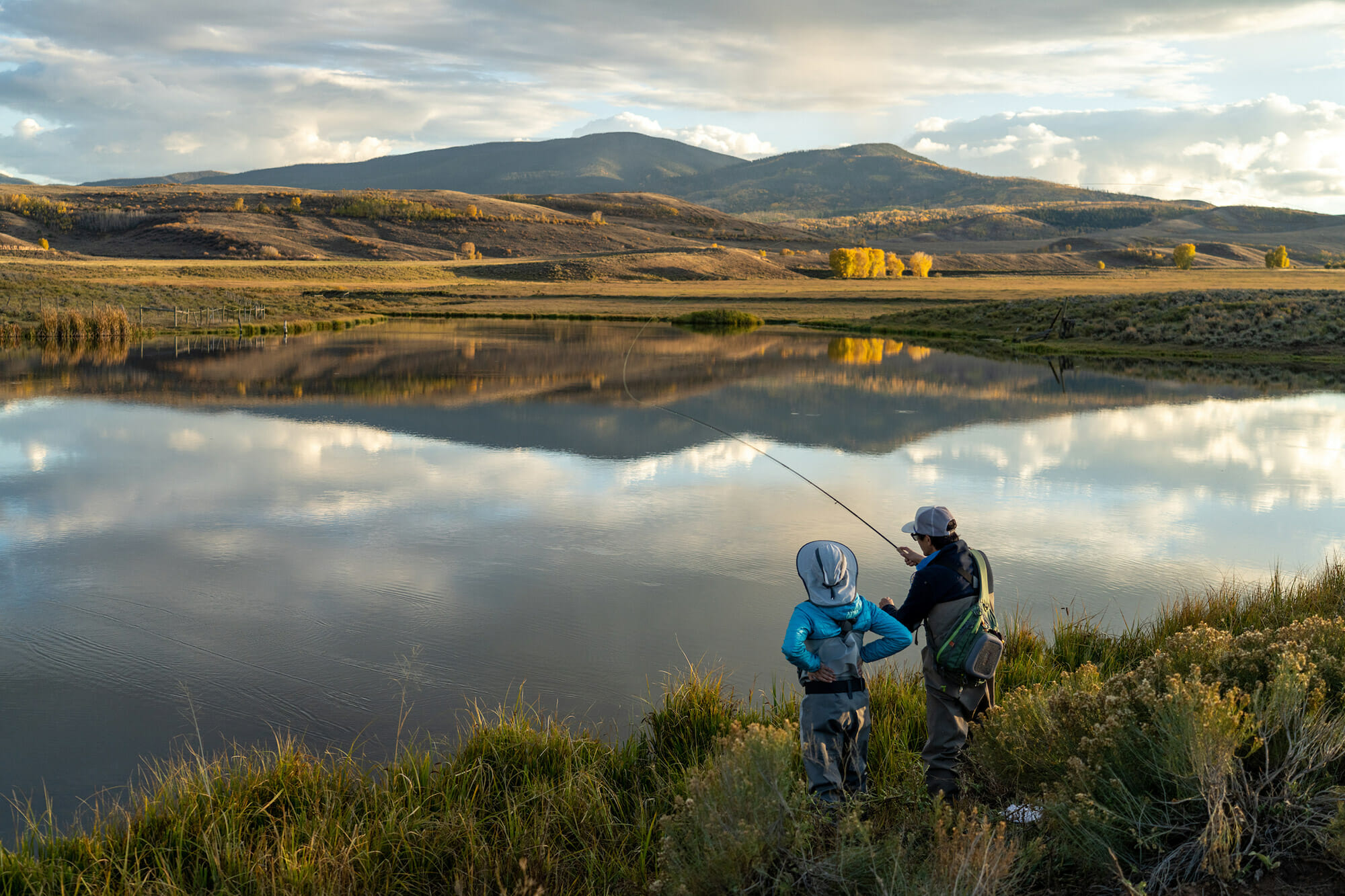When it comes to stream etiquette, knowing the difference is key.
“Almost everyone loves to be taught how to fish. And almost everyone hates to be told how to fish.”
I say that all the time, because it’s a lesson I learned by trial and error over 30 years—through printed pages in magazines, interacting in the online world, and most importantly, while my boots were wet, fishing with others.
When it comes to fly fishing, there is indeed a very subtle—yet incredibly important—difference between “teaching” and “telling.” And if you aspire to write stories for large audiences about fishing… or be a guide who can make a living for more than a season or two… or even if you just hope to effectively mentor your kids or friends about fly fishing in a way that resonates and sticks… understanding that little nuance between “teaching and telling” can make all the difference in the world.

These days, with so many “newbies” exploring fly fishing for trout and myriad other species, the issue of “stream etiquette” is becoming more important. With the “industrialization” of guided fly fishing as a pay-to-play pastime, ethics and etiquette are even more pressing concerns.
It’s one thing, for example, to get “low-holed” by a person who steps into a run you’re headed toward because they don’t know any better, and quite another to see a guide pull that stunt with two clients in tow, because any good guide should know better. When the rookie does that, it’s a goof. When the guide does that, it’s a bad example.
I had a good friend relate a story that really got me thinking on these matters. He said he watched a guide land a fish, remove the hook and then fling the fish back into the river from his net, as if his net were a lacrosse stick. There were other guides nearby who saw the whole thing.
The question is, should somebody say something to the trout-flinging guide in that situation? And if that person weren’t a guide, rather a do-it-yourselfer, should you feel an onus to say something?
To be clear, I’ve never seen an argument or a shouting match on the water turn out to be a positive thing. Those uncomfortable situations just put a stain on the day for everyone who experiences them, even as onlookers. So no, I don’t think anyone should have “chewed out” that guide, right there on the spot. And if he weren’t a guide, maybe a friendly comment in passing about how you “can’t keep fish wet as they’re flying through the air” would do the trick. But do it with a wink and a smile.

In the guide context, however, I definitely think something should be said at some point. It should be “taught, not told.” That needs to happen peer-to-peer, from one guide to another. It shouldn’t happen in front of the clients, rather, it should be a mentoring conversation that happens at the takeout, or over cold suds somewhere. But it should happen. Flinging fish out of a net, by a guide is unacceptable behavior, period. And if guides aren’t willing to uphold the standard, even if that means an awkward conversation, then we’re all in trouble.
Some guides these days—usually the inexperienced ones—explain away marginal ethics by saying, “I’m only doing what the client wants me to do.” At which point I wonder if that’s actually guiding or being the tail on the dog. Yes, it’s a service business, but the best guides I know—and there are many—are always leading and seldom following.
And they’re always teaching, seldom telling people how to fish.



